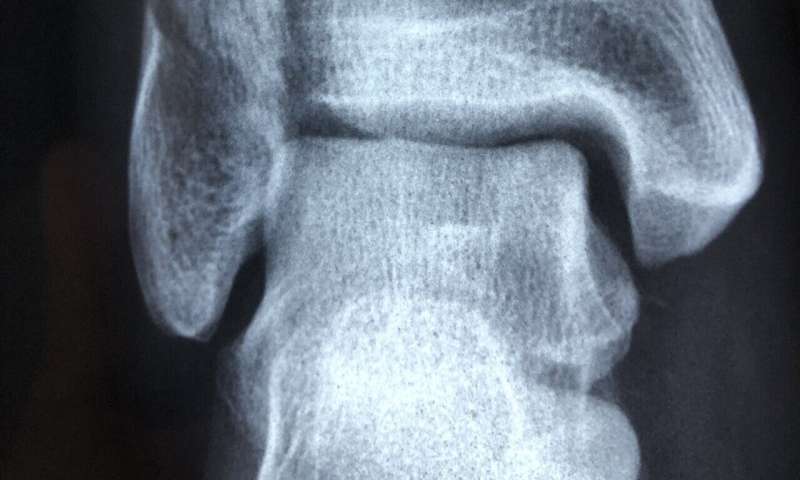Smoke break: New study strengthens link between smoking and increased fracture risk in men

It’s no secret that puffing cigarettes is the culprit behind a whole host of ailments, including respiratory diseases and cancers of the lungs and throat. But a new University of Nevada, Las Vegas (UNLV) study has revealed that male smokers—who, demographically, are more likely than women to light up—are also placing themselves at a significantly increased risk of osteoporosis, bone fractures, and early death.
A UNLV research team analyzed nearly 30,000 broken bone cases reported over the past three decades in 27 research publications and found that smoking increases the risk of breaking a bone by as much as 37%. The meta-analysis, published last week in the Nature journal Scientific Reports, is the first to expand scientists’ scope beyond examining primarily hip fractures to other parts of the body, including the wrists, shoulders, forearms, femurs, lower legs, and spine.
UNLV’s study bolsters data from previous studies, which found that smoking increases the chance of spine and hip fractures in men to 32% and 40%, respectively. And, the older studies found, between 21% and 37% of those injured male smokers die within a year of their bone breaks.
“Smoking is a major risk factor for osteoporosis and risk of fracture,” said study lead author Qing Wu, a researcher with UNLV’s School of Public Health and the university’s Nevada Institute of Personalized Medicine. “Men tend to smoke more than women, increasing their risk for osteoporosis, which has traditionally been thought of as a women’s disease.”
Cigarettes’ influence on fracture risk isn’t fully understood, researchers said.
Smoking is thought to increase the risk of skeletal fractures because the chemicals in cigarettes negatively impact bone cells and reduce the body’s ability to absorb Vitamin D and calcium—critical nutrients for strong bone mineral density, said Wu. Additionally, he said, smoking is considered a risk factor for injury in general because there is evidence that nicotine interferes with the tissue repair process, making the body more susceptible to wounds and inhibiting fracture healing.
As medical advancements contribute to an ever-aging population, researchers call on consumers to pay attention to the link between smoking and osteoporotic fractures, which are a major cause of disability and premature death for older people.
Source: Read Full Article
